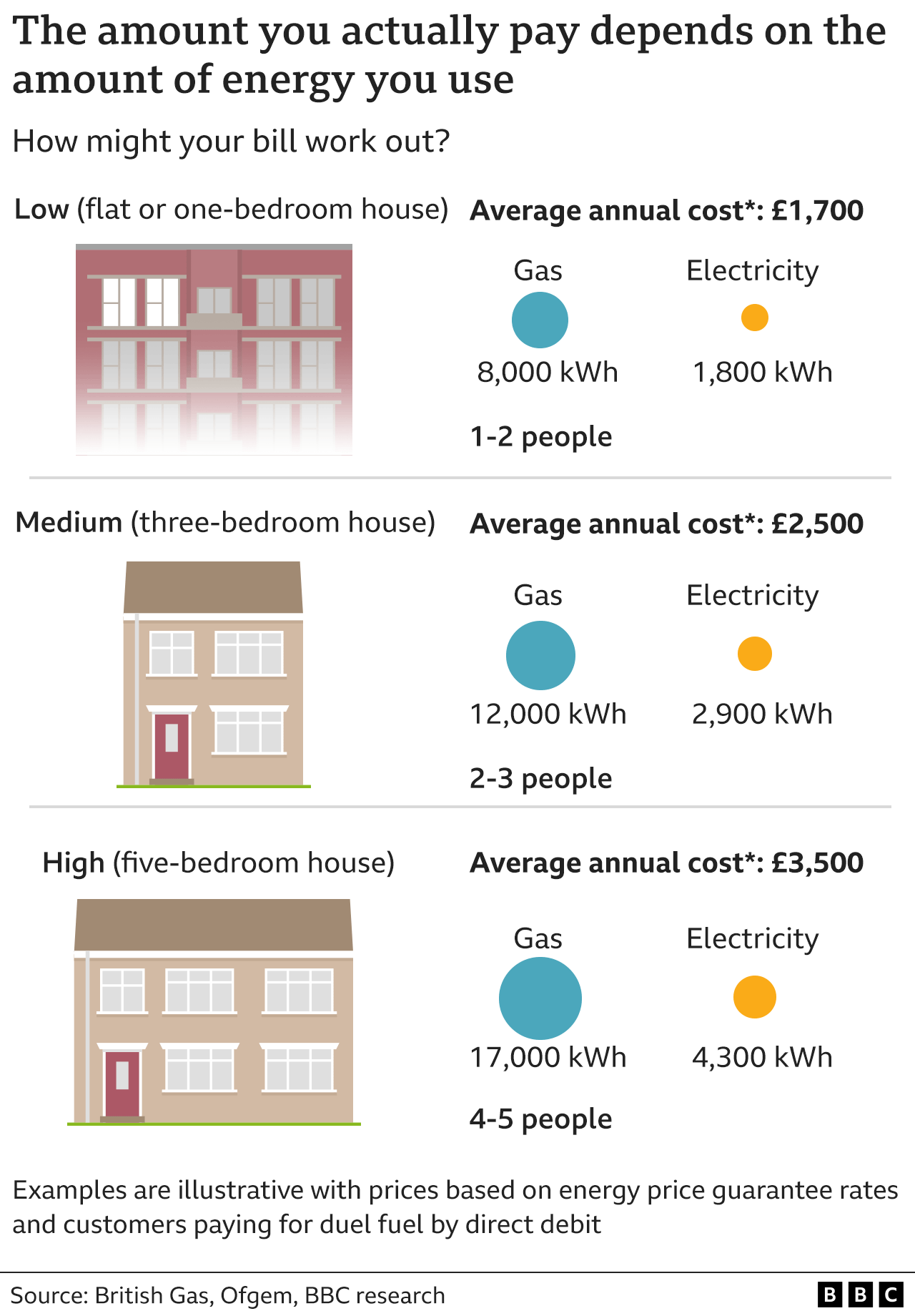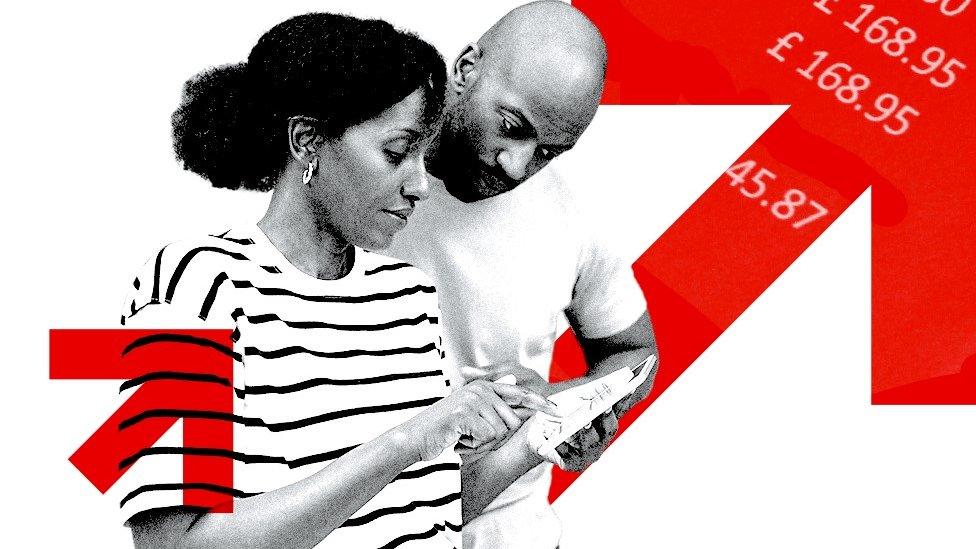Energy bill help to continue until end of June
- Published
- comments

The government will extend support for energy bills at current levels for a further three months in Wednesday's Budget, as it seeks to boost growth.
Typical household energy bills in Britain had been due to rise to £3,000 a year from April, but instead will be kept at £2,500 until the end of June.
But a £400 winter fuel payment will not be renewed, meaning households' costs will still rise in the short term.
The chancellor is due to set out a broader plan later to grow the economy.
Among other things, he is expected to expand free childcare and ease pension tax thresholds.
Under the Energy Price Guarantee, the government has been limiting energy bills for a typical household to £2,500 a year, plus a £400 winter discount.
That help was set to be scaled back from 1 April, and with the £400 discount also coming to an end many had warned this would heap hardship on families already struggling with the cost of living.
Campaigners had urged the government to change course, pointing out that falling wholesale energy prices have sharply cut the cost of offering support.
Energy is regulated separately in Northern Ireland, where bills will be held at £1,950 per year for an average household.
Chancellor Jeremy Hunt said: "High energy bills are one of the biggest worries for families, which is why we're maintaining the Energy Price Guarantee at its current level.
"With energy bills set to fall from July onwards, this temporary change will bridge the gap and ease the pressure on families, while also helping to lower inflation too."
Experts say the energy bill support scheme will not be needed this summer, due to falling market gas prices.

Analysis firm Cornwall Insight forecasts that the Energy Price Cap - which is set by the energy regulator Ofgem and limits what suppliers can charge consumers per unit of energy - will fall to £2,100 a year for a typical household from July.
Mr Hunt has said he will cut costs for vulnerable people by £45 a year by bringing prepayment energy charges in line with customers who pay by direct debit.
The Treasury said help for around eight million low income and vulnerable households will continue, with families getting at least £900 in cash payments over the next year.
But there are questions over the thinking behind the decision to extend the Energy Price Guarantee. It is universal help - in other words, everyone gets it, irrespective of how big an issue energy bills are in their home.
Critics say the £3bn extra it will cost would be better spent if targeted at those who really need it.
Audit giant KPMG urged the government to come up with a long-term plan to protect consumers from volatile energy prices.
"It can't just be another three months where we wait and see what happens to wholesale prices," said Simon Virley, who leads its UK energy practice.
"The government needs to move beyond their short-term emergency measures and find a way to target support for energy bills on those who need it most."
Related topics
- Published3 April 2024

- Published3 March 2023

